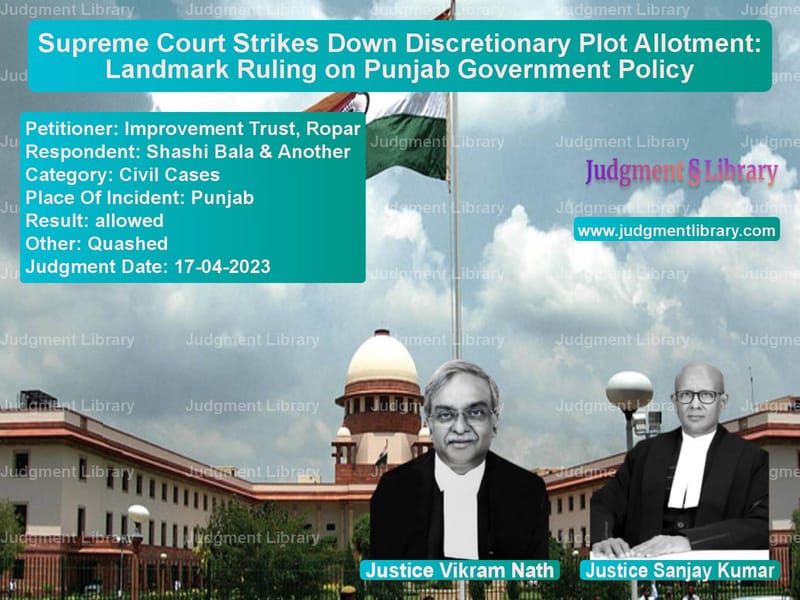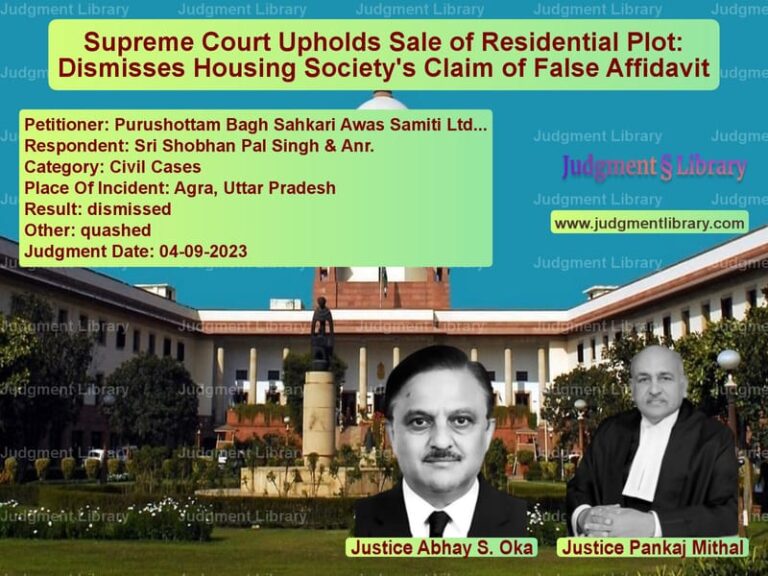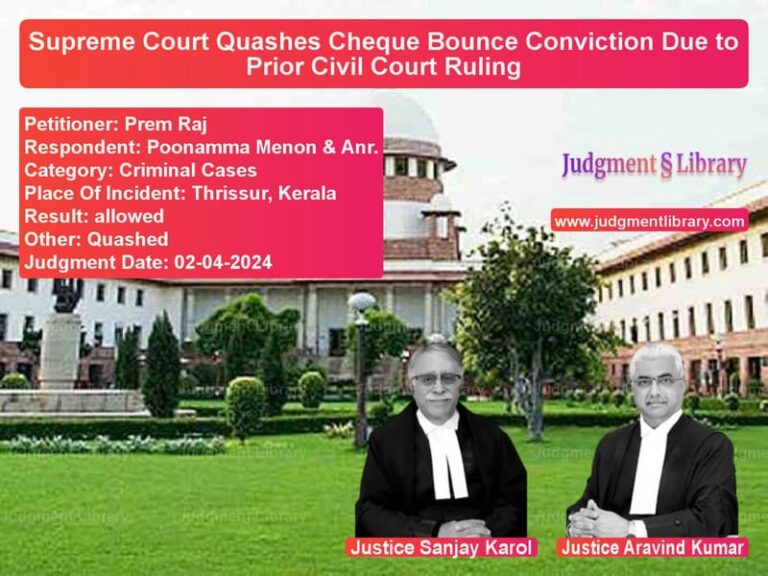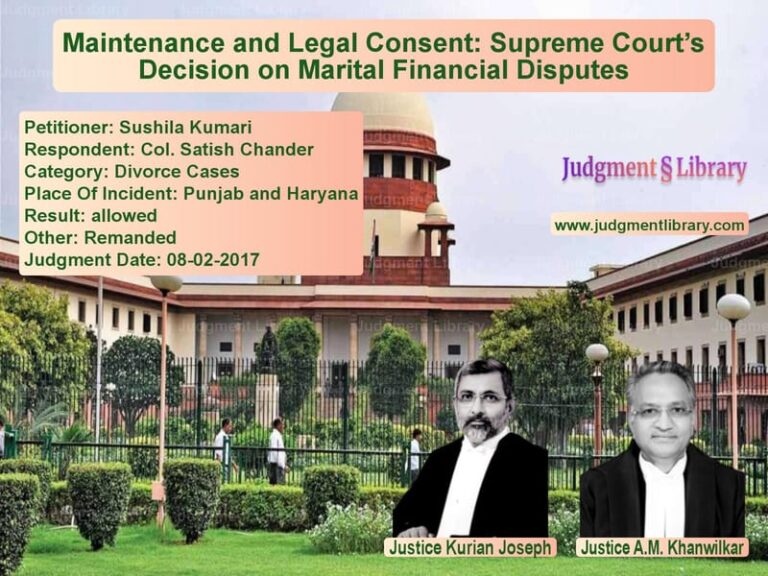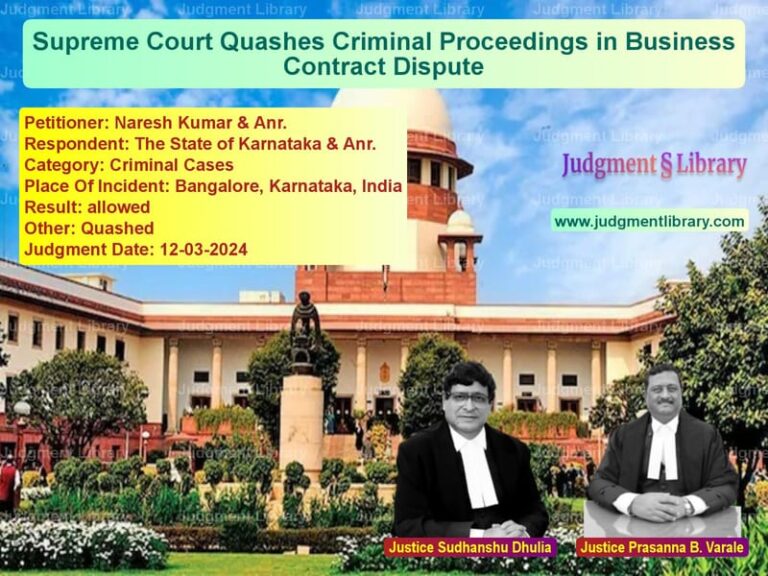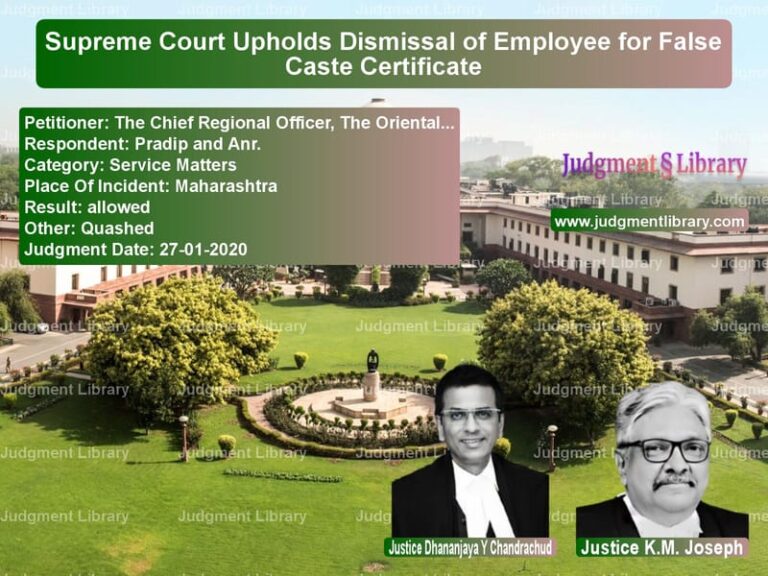Supreme Court Strikes Down Discretionary Plot Allotment: Landmark Ruling on Punjab Government Policy
The Supreme Court of India, in the case of Improvement Trust, Ropar v. Shashi Bala, delivered a landmark judgment invalidating the discretionary allotment of residential plots by the Punjab Government. The ruling upheld the Full Bench decision of the Punjab & Haryana High Court, which had declared such discretionary allotments arbitrary and violative of Article 14 of the Constitution. The Court held that the petitioner, Shashi Bala, had no vested right to claim allotment as the scheme under which she applied had already been declared unconstitutional.
Background of the Case
The dispute arose from an application filed by Shashi Bala, a social worker, who had sought the allotment of a 500-square-yard plot under the discretionary quota of the Chief Minister of Punjab. The key developments in the case are:
- On January 28, 1987, Shashi Bala applied for a plot under the discretionary quota.
- On February 11, 1987, the Punjab Government approved the allotment.
- The Improvement Trust, Ropar, asked her to submit necessary documents, which she claimed to have done.
- On January 2, 1989, the Punjab Government informed her that no plot was available.
- She filed a writ petition in the Punjab & Haryana High Court in 1992, seeking the allotment of the plot.
- The High Court ruled in her favor in 2006, directing the Trust to allot a plot.
- The Trust appealed, but the High Court’s Division Bench dismissed the appeal in 2008.
Meanwhile, a separate case (Dr. Amar Singh & Ors. v. State of Punjab) challenged the legality of the discretionary quota. In 2003, a Full Bench of the High Court struck down the scheme, holding that such allotments were arbitrary and violative of Article 14 of the Constitution.
Petitioner’s Arguments
The Improvement Trust, Ropar, argued:
- The discretionary quota itself had been declared unconstitutional.
- Shashi Bala was never actually allotted a plot—only an approval was given.
- The Full Bench ruling in Dr. Amar Singh’s case rendered any allotment under this scheme void.
- Allowing Shashi Bala’s claim would violate the Supreme Court’s ruling in Harsh Dhingra v. State of Haryana, which upheld the invalidation of such quotas.
Respondent’s Arguments
Shashi Bala contended:
- The Punjab Government had already approved her allotment.
- She had complied with all formalities and submitted required documents.
- The Trust’s refusal to allot a plot was unjustified.
- The Full Bench ruling did not apply to her case because she had applied before the judgment.
Key Legal Issues Considered
- Was Shashi Bala entitled to allotment under the now-struck-down discretionary quota?
- Did the Punjab Government’s approval create a vested right for her?
- Could the High Court’s order override the Full Bench ruling invalidating discretionary allotments?
Supreme Court’s Observations
The Supreme Court ruled in favor of the Improvement Trust, stating:
- “The discretionary quota under which the allotment was approved was declared unconstitutional in 2003.”
- “No identified plot was allotted to Shashi Bala—only an approval was granted.”
- “The High Court’s ruling contradicted the Full Bench decision, which had already struck down the scheme.”
- “Merely applying for a plot does not create a vested right when the scheme itself is illegal.”
The Court cited the Harsh Dhingra case, which upheld a similar ruling against discretionary allotments in Haryana.
Final Judgment
The Supreme Court ruled:
“The appeal is allowed. The orders of the Punjab & Haryana High Court dated 23.01.2008 and 17.11.2006 are set aside. The claim of Shashi Bala for discretionary allotment is dismissed.”
Impact of the Judgment
- Strikes down discretionary allotments – Ensures that government plots are allotted through transparent procedures.
- Prevents misuse of public land – Stops favoritism in government land allocation.
- Upholds constitutional rights – Strengthens Article 14 by preventing arbitrary decision-making.
Conclusion
The Supreme Court’s ruling in Improvement Trust, Ropar v. Shashi Bala reinforces the principle that discretionary allotments of public land must be transparent and constitutional. By striking down the claim, the Court has upheld Article 14 of the Constitution and ensured that land allocation follows fair and non-arbitrary procedures.
Petitioner Name: Improvement Trust, Ropar.Respondent Name: Shashi Bala & Another.Judgment By: Justice Vikram Nath, Justice Sanjay Kumar.Place Of Incident: Punjab.Judgment Date: 17-04-2023.
Don’t miss out on the full details! Download the complete judgment in PDF format below and gain valuable insights instantly!
Download Judgment: improvement-trust,-r-vs-shashi-bala-&-anothe-supreme-court-of-india-judgment-dated-17-04-2023.pdf
Directly Download Judgment: Directly download this Judgment
See all petitions in Property Disputes
See all petitions in Specific Performance
See all petitions in Damages and Compensation
See all petitions in Judgment by Vikram Nath
See all petitions in Judgment by Sanjay Kumar
See all petitions in allowed
See all petitions in Quashed
See all petitions in supreme court of India judgments April 2023
See all petitions in 2023 judgments
See all posts in Civil Cases Category
See all allowed petitions in Civil Cases Category
See all Dismissed petitions in Civil Cases Category
See all partially allowed petitions in Civil Cases Category

